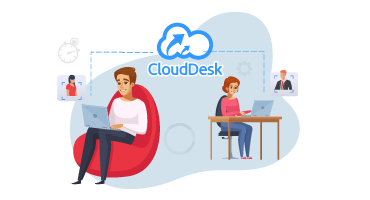Employee Monitoring Ethics
Maintaining employee monitoring ethics, especially during the uncertain times of COVID-19, is extremely important. It is true that employee monitoring is an effective approach to the management of remote employees, however, it cannot be denied that it has raised a number of ethical questions with regards to privacy and legal concerns. This is why it is important to understand employee monitoring ethics, so employers can monitor their employees in such a way that is both lawful and morally acceptable.
It is already known that the act of employee monitoring involves tracking your employees’ activities using systems such as video surveillance, computer monitoring, and so forth. However, employee monitoring ethics is what allows an employer to understand how exactly they are able to monitor their employees and their work without invading the privacy of employees and staff members. It is through employee monitoring ethics that employers can establish a transparent employee monitoring system that allows for the creation of a safe and productive workplace. With employee monitoring, there is always the possibility for criticism, ethical implications, and even legal consequences if the employee monitoring process is not done correctly. This is why employee monitoring ethics is so vital within any company that chooses to make use of any kind of employee monitoring.
Two Major Ethical Consequences of Employee Monitoring
It is of the utmost importance that there is full employee/employer trust and transparency when it comes to employee monitoring. It is also important that, when implementing employee monitoring methods, employees have been given the opportunity to voluntarily give full consent to being monitored. If these requirements are not fulfilled, major ethical consequences of employee monitoring will follow.
- Breach of Privacy and Personal Data
Most employees view employee monitoring and the processes thereof as personal privacy invasion and thus feel extremely uncomfortable and uneasy about it. The constant surveillance of employees and their computer usage during work hours, and the potential for it to overflow into after work hours, is of special concern. Monitoring and watching employees without their consent is a serious ethical concern. Not only that, but monitoring employees without their given consent is a serious legal concern and has the potential of becoming a court matter. Monitoring employees without their knowledge or consent will most definitely result in the breaking of trust between an employee and employer, as well as the possible full loss of an employee due to resignation on terms of breach of privacy and personal data.
- Reduces Employee Morale and Trust
Monitoring employees, especially without their consent, can lead to resentment and mistrust within the workplace. Acts such as monitoring personal emails or personal messages outside of work-related matters have the potential to send all the wrong messages and may lead to serious tension between employees and their employer. When employees find out that they have been monitored by their employers this can negatively impact their workplace behavior and directly impact an employee’s motivation, productivity, and performance.
CloudDesk Employee Monitoring Software
The CloudDesk® remote employee monitoring software provides real-time visibility into distributed workforce activities to increase productivity, improve compliance, and optimize performance. The cloud-based solution enables employers to monitor employees in an ethical and legal manner, with the full knowledge and consent of their employees. With features such as random screenshots, employee facial ID verification, and web and app usage monitoring, employers are able to efficiently monitor and manage all employees who have consented to be monitored. If you wish to learn more about this employee monitoring program, please contact m2sys for more information.













That’s really an important topic you have talked about. Companies are legally able to use keystroke recording software on company computers, install video cameras, monitor employee alertness, track physical movement using location-based software, compile lists of websites and apps visited, monitor emails, social media posts and collaboration tools, and collect data on productivity, how employees spend their time and how long it takes them to complete certain tasks.
Due to the COVID-19 epidemic, more and more people are working remotely from home, and the line between work and home is becoming increasingly blurred as people spend a lot of time on company devices and work phones, even on nights and weekends.